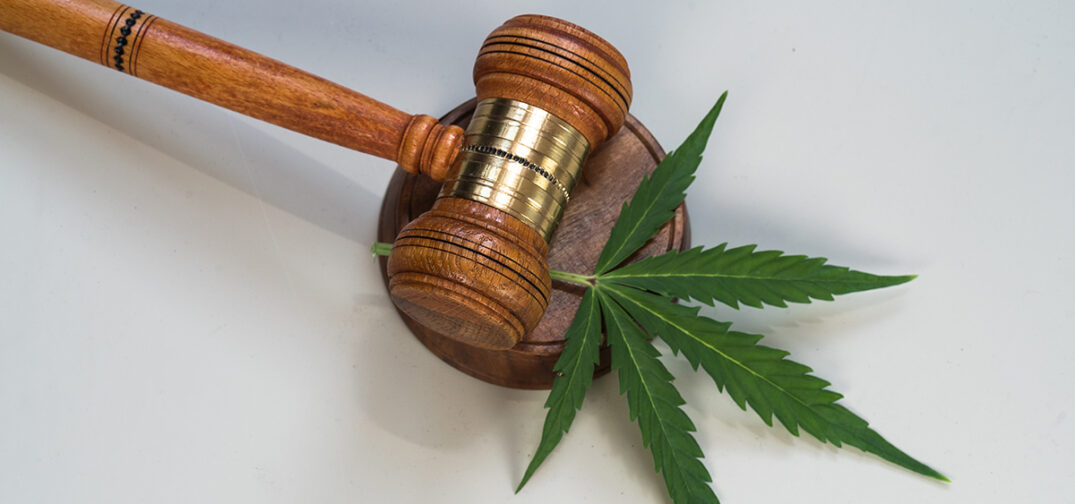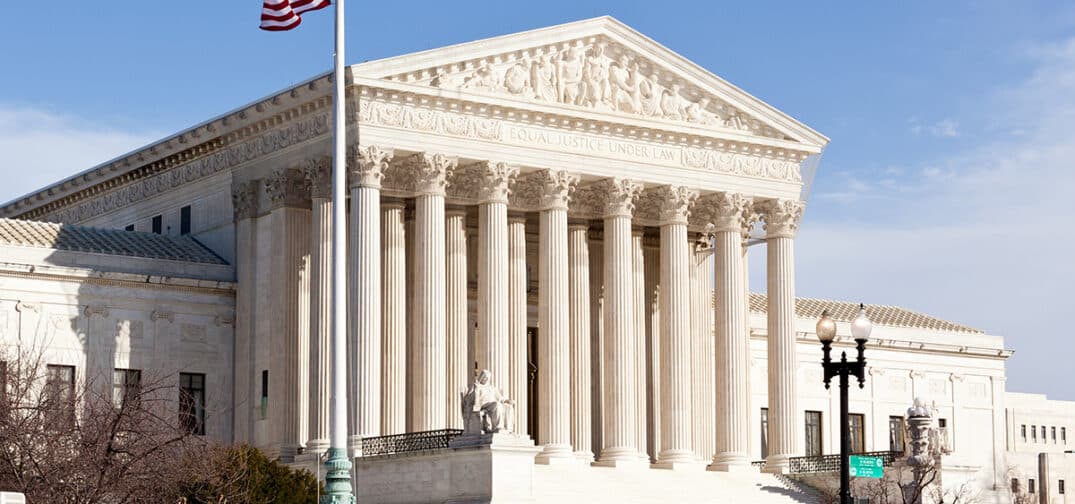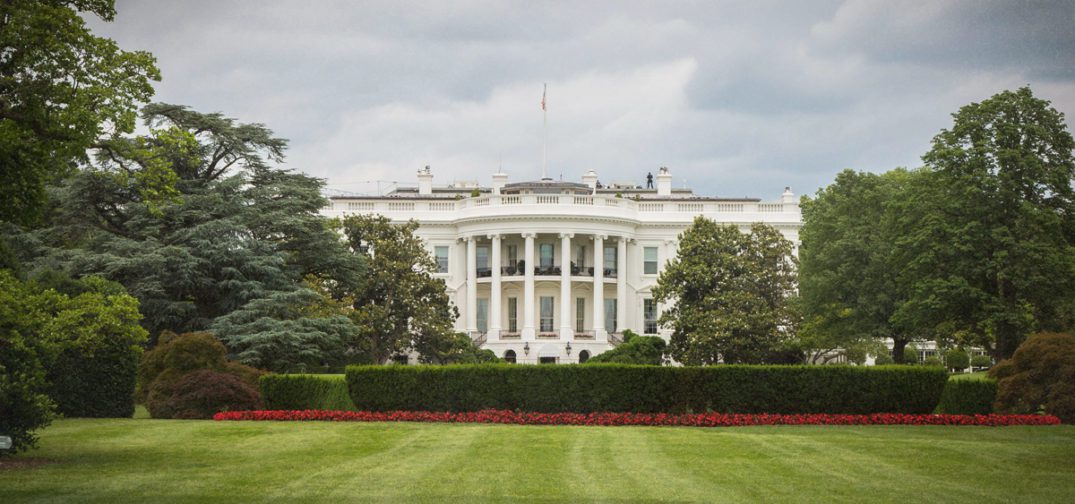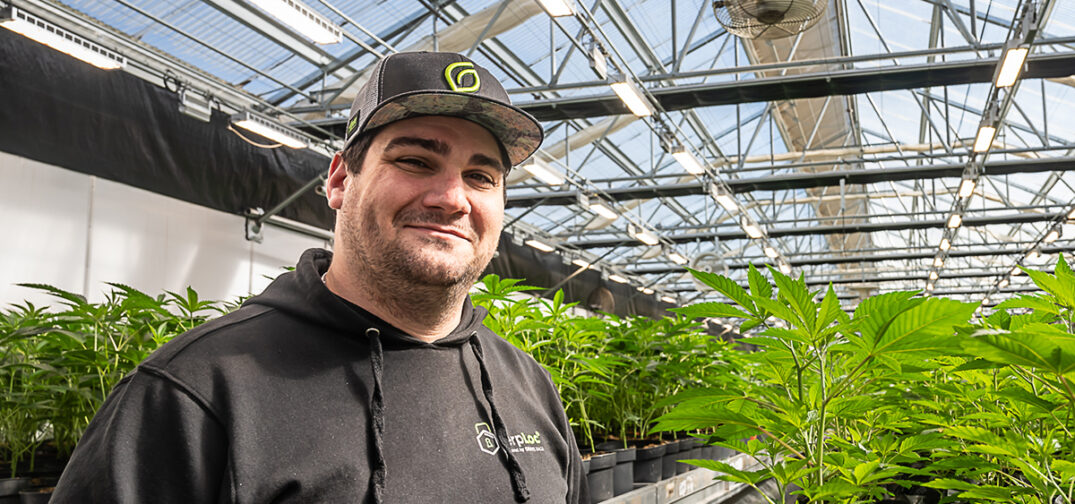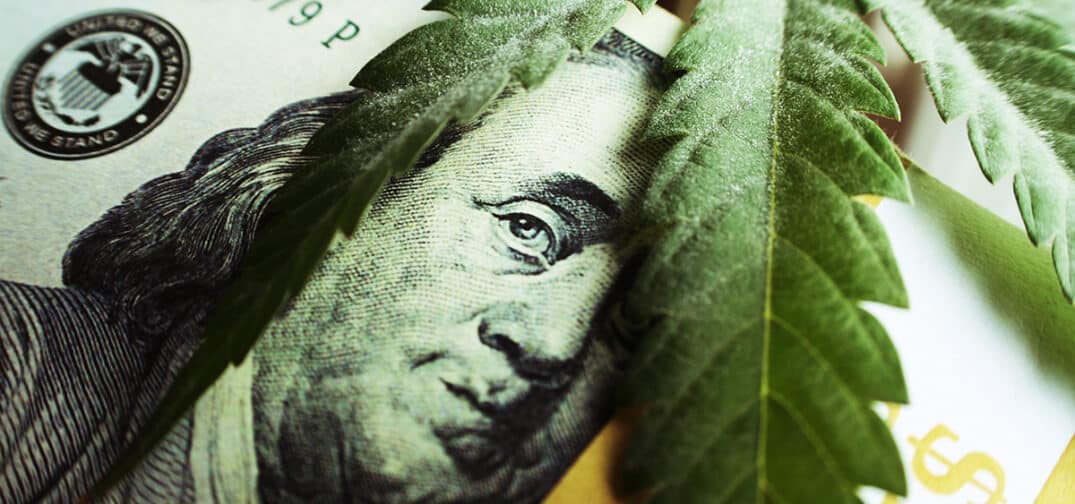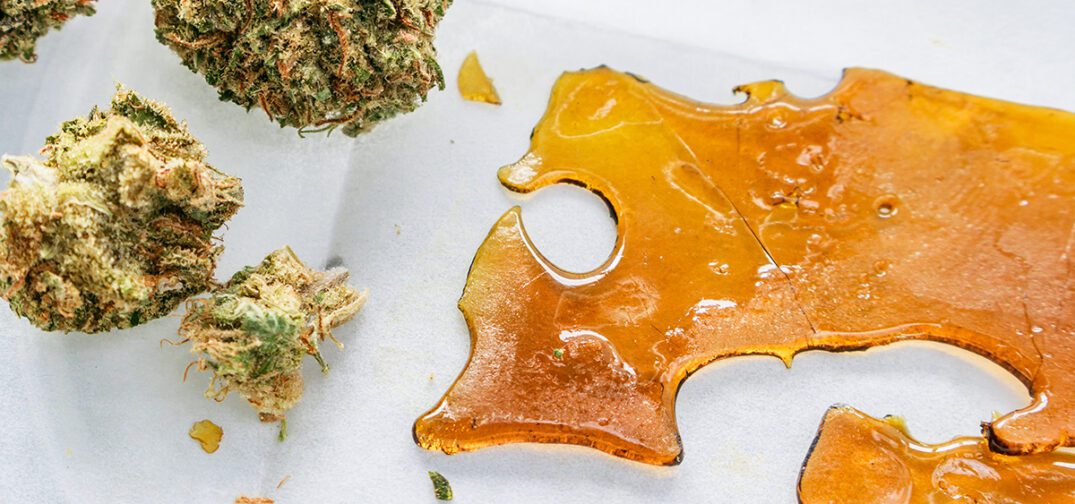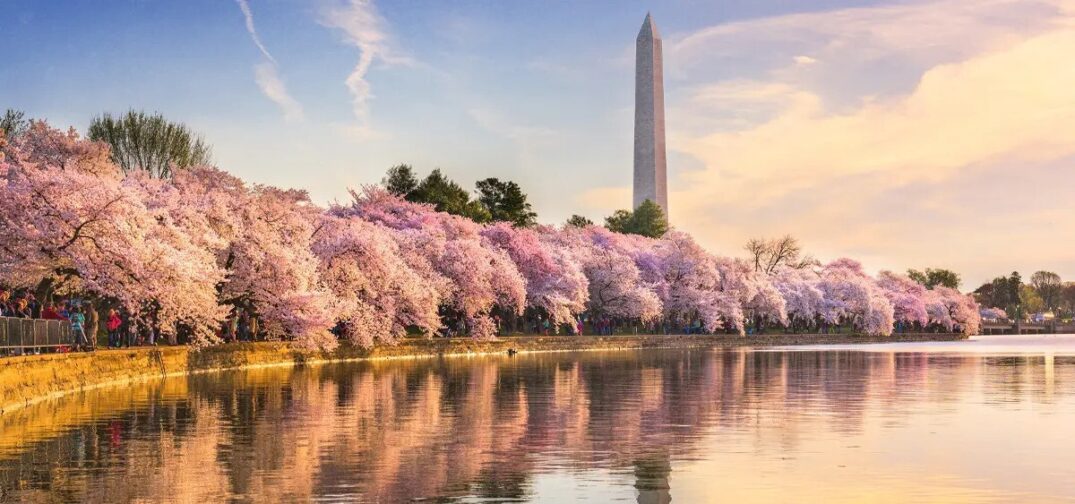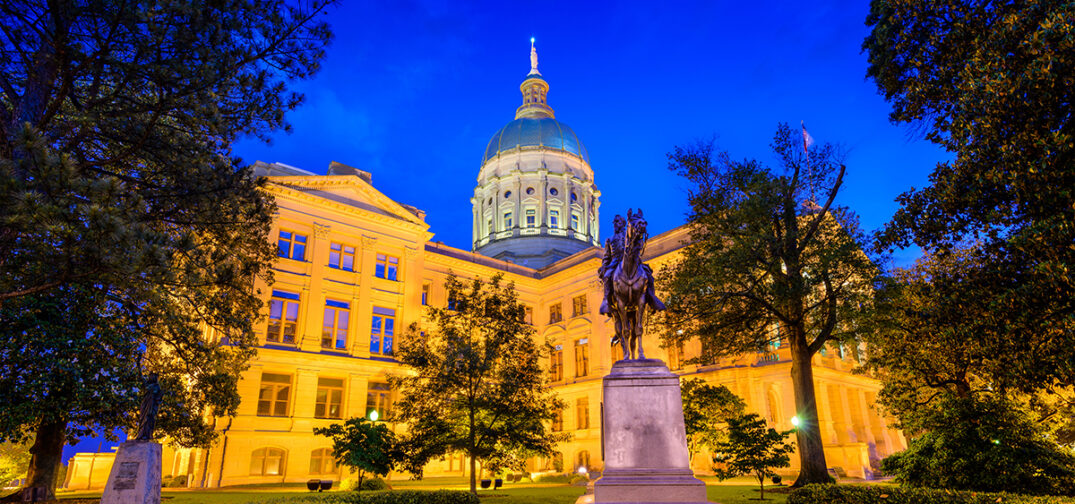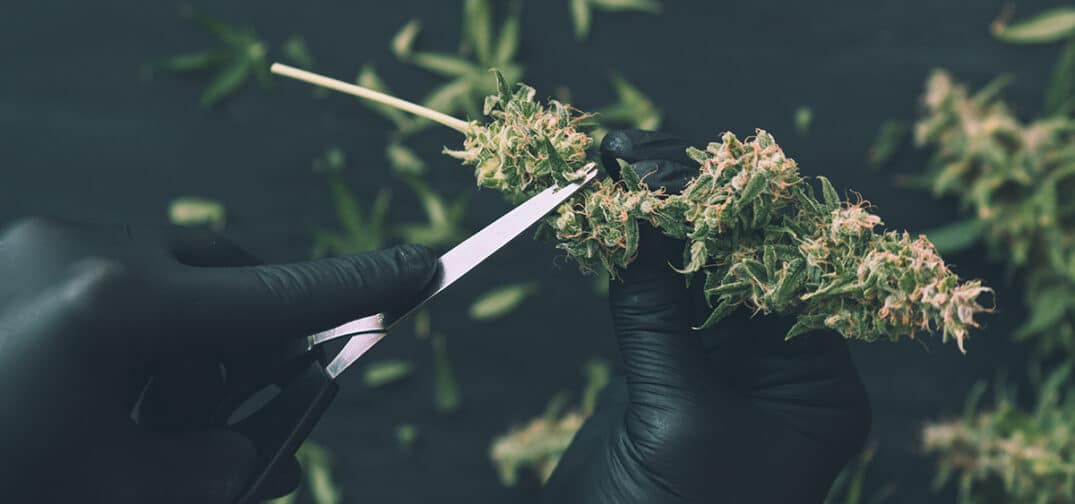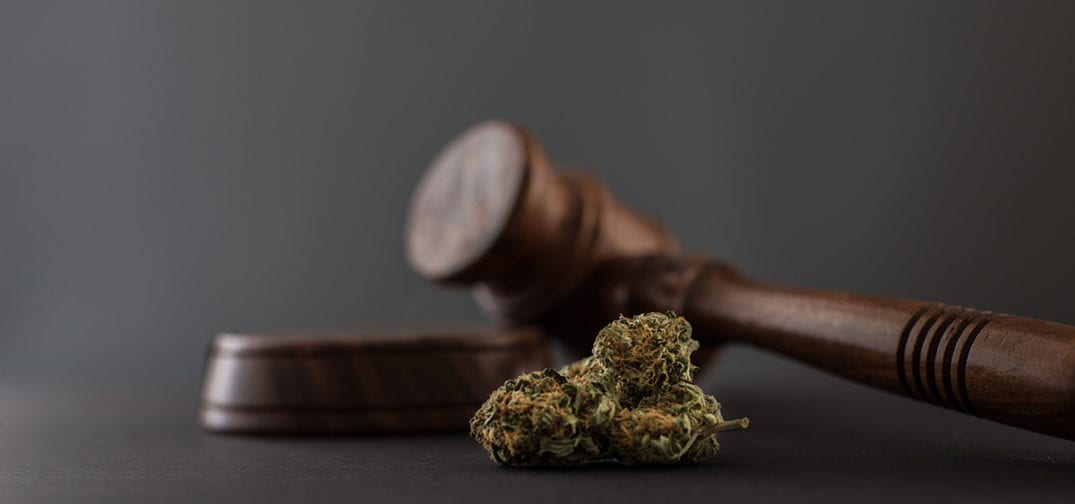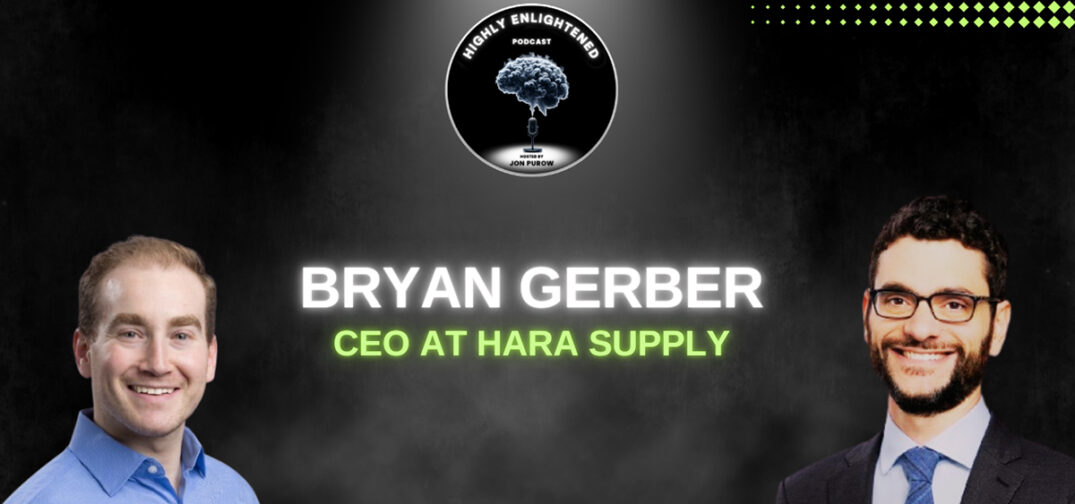In this episode of Highly Enlightened, host Jon Purow connects with Bryan Gerber, the founder and CEO of HARA Supply, a supplier of custom preroll cones and packaging. HARA Supply spans 15 facilities with over 4,000 personnel based in India, along with HQ office and warehouse located in Las Vegas, NV. They currently produce over a billion pre-rolled cones per year for some of the cannabis industry’s largest entities.
Gerber is also the founder and CEO of HARA Brands, a four-time inc. 5000 company, which includes: Hemper, the largest subscription business in the cannabis industry with more than 1 million boxes sold, as well as Hemper Tech and Goody Glass, providing high quality smoking accessories and related products.
Listen to the episode below or wherever you get your podcasts — you can find more episodes of Highly Enlightened on Buzzsprout.
Listen to the episode:
Episode sponsored by eBottles
This episode of Highly Enlightened is made possible by eBottles. If you’re in the cannabis business, you know that quality packaging isn’t just important—it’s essential. That’s where eBottles comes in. Whether you’re just starting out or scaling up, eBottles offers proprietary top-of-the-line packaging products built for cannabis. eBottles is a market leader for a good reason: they are experts in the field. Six patents, five warehouse locations around the country, a network of exceptional distributors. Get eBottles and Grow Boldly.
Read the Transcript:
Note: this transcript was automatically generated and may contain errors.
Jon Purow:
Welcome to an interview episode of Highly Enlightened, I’m your host, John Purow. Now, before we get to a very, very exciting interview, I want to note that any views I express are my own now as I always like to do, and most of the time it’s successful. I want to do a quick prayer to the video chat. Gods may. Our wifi connections be sturdy. All dogs and children, they’re around remain quiet and may Amazon Prime another time. Amen. Now I have the pleasure of introducing Brian Gerber, the CEO of HARA Supply, a major player here in the industry. And I just want to first say thank you for taking the time out of your busy schedule to join me for this joint endeavor, pun intended.
Bryan Gerber:
Thanks for having me on, John. I appreciate it. Looking forward to chatting about the industry today.
Jon Purow:
Yes. And for those unfamiliar, I do just want to note that Harris Supply is the largest manufacturer of cannabis cones and combustibles in the world. And you produce a hundred million plus cones monthly, which means that you produce over a billion per year. Which leads me to my first always incredibly serious question. Do you enjoy being able to say that you sell 1 billion items per year? Because that is an amazingly large round number. Is there any enjoyment that you get in being able to say it, and do you do it with accents or impersonations?
Bryan Gerber:
I reserve the doctor evil impersonation for my closest confidants, but no, it is pretty cool to say that we produce over a billion cones a year and products alike. I think a lot of people don’t realize the scale of millions, two billions and what type of infrastructure and setup that really entails.
Jon Purow:
Got it. So look, all of us came from somewhere before the cannabis industry being the age that it is. So I’m curious to know, out of all the experiences that you went through, skills that you built up prior to the cannabis industry, which did you think has been most instrumental or useful in your leadership role at Harris Supply?
Bryan Gerber:
So I’m one of the fortunate ones that never had a career before this industry. I graduated to university and then went straight into the startup world. But I can tell you persistence and tenacity.
Jon Purow:
Yes. As a parent of girls, I read all my self-improvement articles. They always say that if there’s going to be a determination of success and or happiness, persistence, stick to itness is what you want to roll with so much, right. If at first you don’t succeed, try again. Or if at first you don’t succeed, get high again. Right. There’s got to be some pop pun option that we could come to, so. Got it. So you are one of the lucky few that was born straight into this industry professionally and we’re able to kind of succeed with it. So now being a leader and in the lofty perch, the pop perch that you’ve reached, what advice would you give to other leaders in the cannabis industry? What tips would you put out there?
Bryan Gerber:
Yeah, so in terms of startup world culture, I think the bootstrapping and cash management is a major topic and something that I think a lot of startups that I invest in or do angel investing in, I just preach all day. Cash is king. Focus on managing the cash, lower the burn as fast as possible and try to get to cashflow positive. I think that’s definitely one of the biggest ones because it’s necessary to keep alive and keep the lights on. And I think a lot of people in our industry thought that it was going to kind of be big tech where we can raise unlimited funds and keep going and burn this guy to rob Paul, to pay Peter to pay Sally to that type of thing. So I think that’s definitely a big thing. And I think a lot of other things that I say revolve around finding revenue streams.
Go figure it out. I think a lot of new industries, there’s a lot of rocks that go unturned, and I say turnover every rock because you never know what pot of gold might be under that. And I think for us as horror supply kind of morphing from the paraphernalia, smoking accessories world to getting into this massive pre-roll solutions partner behemoth company, it really showed that we started in one lane and then figured out many more revenue streams to keep the business growing. And I think now looking back, hindsight bias, obviously 2020, I think to really build a big business, you need multiple revenue streams.
Jon Purow:
So look, you stick in a lane, but I think flexibility and also as you said, the vision to expand as you are growing, to continue having money coming in the door. Yeah. I found it funny the way that you were saying cash is king. People might forget that, and there’s plenty of attrition in the industry that we see all the time in terms of people who forget fundamental items like that.
Bryan Gerber:
Yes. I get surprised every day hearing a new story about took money, bought a Ferrari, bought an apartment. I’m like, why can’t I be like that?
Jon Purow:
Well, you could be like that now because you’ve earned the right to be right, but not, it’s not necessarily a requirement. Ferrari, I would say for most startup companies if I’m correct, since I’m just on the service industry side of it. But yeah, I don’t think it’s a requirement.
Bryan Gerber:
Exactly.
Jon Purow:
Yeah, I always have little things pop in my brain. By the way, here’s a slogan for you. We supply what gets you high. There you go. Boom. All right. That’s a freebie for you. I’m sure you have something like that. Now in your time in the industry, what would you say that I always like to focus on? What are some of the biggest surprises at this point? It’s not surprising, as you said, when you hear stories about wonderful ways that people have crashed and burned outside the industry. But what are some of the biggest surprises to you from where you
Bryan Gerber:
Sit? Yeah, for sure. I think one of the biggest surprises, not just from poor leadership that I see in the industry, but the turnover is insane. I mean, the roles get replaced every other week, especially on our side of the business development. You’re sitting there for 90 days going through custom sampling, tooling, all different types of stuff, and you get to the finish line where we’re about to go put the order in and that person gets fired and you’re like, oh no. Okay, now I got it. And then Sally picks it up and she’s like, I have no idea why we’re even here today. I’m like, well, we were working with Joey for nine months and Joey’s no longer there. So Sally, you’re here picking up the pieces. Let me kind of break it down for you. So I think turnover has been one of the biggest pain in the butts in this industry and surprises, another surprise is just how much people can raise and spend in a very short amount of time.
It’s quite intriguing, I guess I’ve seen it. We do a lot of the big MSOs, we deal with a lot of the processors, and I think just some of these guys are able to just continuously raise funds and keep raising and it’s like, where’s the light at the end of the tunnel? For us, we raised three and a half million dollars back in 2018, 2019, and we’ve been cashflow positive since. And so for us it’s a different kind of story of where we didn’t go out and raise tens of millions of dollars, hundreds of millions of dollars. So I think that’s another one is doing a lot with a little bit. And a lot of people seem to have a lot and can’t figure out how to do a little you. But I would say those are probably the two biggest surprises that I’ve come across in this industry.
Jon Purow:
Are there processes that you put into place to streamline having to deal with someone new outside of forwarding the old email chain? Is there anything you’ve done to get accustomed to the fact that there is such frequent turnover?
Bryan Gerber:
I’ve really tried nurturing C-suite relationships so that regardless who ends up becoming the buyer or the supply chain person I’m friendly with, the person at the top
Jon Purow:
Has seemed to. And I think that that touches upon something. There is something in my mind completely unique about how collegial the cannabis industry is, and I’ve always tried to put my finger on it. And I don’t know if it comes all the way back to the puff puff past mentality that sharing is ingrained as part of the culture, but I’m curious to know if you agree, right, and how important relationships can be in this industry.
Bryan Gerber:
Yeah, no, I think this goes back to my early days of being an entrepreneur where everyone’s like, oh, I need you to sign an NDA to talk to you, or if I give you my idea, then you’re just going to steal it from here. And I realized if you sit in a room by yourself telling yourself your own ideas, it never helps anyone or yourself. And so this industry specifically, I feel like when you get into a C-suite room, people are talking about what’s working, what’s not working, what have you guys tried, whatever else. But I think a lot of that core initial gray market guys are still very close to the chest. They don’t share resources or secrets or whatever it is. But I think a lot of the companies that we sit with where we’re like, they’re like, well, we want to implement automation. And we say, well, great, we know Festus, we know pre-roll or we know accelerant, we know all these guys. Here’s all the offerings, here’s all the information. Do with what you will. I’m not here to make the decision for you, but I can offer optionality. And so I think that’s been a lot of the side where, to your point, the pup past. But I think it’s the specific rooms are willing to communicate, but I don’t think it’s the whole market is ready to open up the Komodo and say, this is how we do it.
Jon Purow:
Yeah, I like to say there’s a difference between the can tenderers and the pret pretenders. And to a certain extent, I feel like people who are newer to the industry don’t understand that collegiality exists and are therefore more skeptical. And some of these folks that are coming in from the illicit market, they’re used to being cloak and dagger can a cloak and dagger in the illicit market. And so it’s a process before they realize that they can open up and there are things that happen, but I think in general there’s just something unique about this industry in terms of that. By the way, how much do you, so first off, as I always like to say, my favorite pop pun being a Jewish guy Mar Wof on having one raise and then being able to just continuously expand to where you are. Do you think that that’s a function of being the pick axis in the industry versus plant touching when it comes down to it that partially played how that played out?
Bryan Gerber:
So I think on first off, why raise more money than you need? You’re just going to dilute yourself. And so that’s 1 0 1 for founders, but at this point, we’re the original founders still own majority equity. We control the board, we’re fully autonomous. We basically get to wake up and work with our best friends every day. So it’s a different setup than I think a lot of people get themselves into, which is a loan to own set up with a lot of these companies and they don’t realize what they’re signing on or they’re signing away. And when one thing goes wrong, we’re coming in, you’re out and we’re going to restructure this thing. For us, we feel like we’re the experts, we know how to drive the ship properly. And I feel like if I got replaced or my other co-founders got replaced, I don’t even know if the company would survive.
So for us, I think on the picks and shovels side, of course I’d love to see a he pre-roll on the shelf one day. But for us, I realized that the customers are the MSOs. It’s an input play. If you’re selling them cones, okay, let’s go to tubes next, let’s go to Blunts, let’s go to glass tip cones, whatever the input is, it’s really just create a great service, have great customer service, deliver time and time again, people will keep coming back. And there’s been so many, getting back to that, finding revenue opportunities is a lot of our customers come to us and say, Hey, you guys did so great with this, can you do this? And we figure out how to do it for them. And so I think a lot of people are just tired of getting burned and the turnover and dealing with multiple different supply chain sources and not really having a centralized location or someone they can actually trust that can deliver. Because before us, I’ll give you an example, Jeter Dream Fields, their first orders with us were like 10,000 cones. You see the volume Jeter does today. And so it’s nurturing the customer whether they’re at the start or the end, and we can come in no matter what part of the journey you’re on, and really fix issues or solidify that infrastructure and get you exactly what you need when you need it.
Jon Purow:
Got it. So now one thing that you touched upon is that you are also, in terms of another hat that you wear, a high hat, oh man, I got to restrain it. The pop puns are just always trying to spill out, but you’re also the CEO and founder of Howard Brands and you referenced Hemper. So if you could just give us a little bit of an intro to that, I think that might be helpful for the audience
Bryan Gerber:
For sure. So I’ll do long story short. So company started in 2015 originally on the smoking accessory side, which we started a brand called Hemper, which was a direct to consumer subscription box, kind of like Dollar Shave Club for stoners.
And we morphed that into kind of this celebrity curated box where it was like smoke like Snoop Dogg for a month, about a year and a half doing that. We kind got away from the celebrities and started moving more into our own proprietary themed and we realized that the subscription box was our Trojan horse marketing outlet for developing new smoking accessories. And so what we figured out was that this was our paid test market for us to go design, develop, and implement new products that made your ritual better. And so Hemper has now become an international brand. We’re sold in about 55 countries. We’ve serviced over 2 million customers in the last decade. We’ve got one of the largest social media followings and we’ve got over 500 different products that we’ve developed. And so with Hemper, a lot of the new initiatives for growth have been getting smoking accessories into convenience stores.
So like Mass Market seven 11, circle K, we’ve been doing a lot of international shows. I was telling you before we were at the Mary Jane Berlin, which ended up being like 50,000 consumers and B2B, B2C focused folks from Germany and all the surrounding countries. And so there’s a lot going on internationally. Germany went legal, we’re going to Czech Republic for another show here in a couple months, which they’re probably going to be the next country to go more fully legal. And so I think that domino effect has really rebirth Europe, I think not just, oh, look at what’s going on in North America. It’s legal here. I think now Europe is starting that domino effect for where we kind of picked up a lot of steam over the last five years.
Jon Purow:
Yeah, I mean as I like to say, you have a trailblazer in each geographic region, which is unfortunately why one reason what’s happening in Thailand is where they legalize and then exploded and they’re pulling back is something that I feel is almost like I say, like a golden nugget, not getting enough attention that it could be, that’s not something that’s really happened in the industry before.
Bryan Gerber:
I dunno if you saw today or yesterday the prime Minister got kicked out.
Jon Purow:
Well, no. So thank you for breaking news. I live in my cannabis bubble and I had not checked my podcast news aggregator so hot off the presses whenever we release this interview. I mean, I actually no lukewarm off the presses to possibly a little bit cooler off the presses, but interesting. I did not see that. So that could be an interesting change in the winds there.
Bryan Gerber:
We have a lot of customers in Thailand and they basically told us that now that he’s, so he got kicked out for fraud or something, so now, and he was the one opposing all the cannabis laws, and so now they think it’s going to go back to normal or even be more prolific. And so a lot of our customers, there’re actually ordering now so that in Anticip they’ll have it on hand.
Jon Purow:
Got it. That’s very, very cool. The thing, the overarching thing for me is I feel like ultimately convenience wins. I feel like it’s how Amazon won and I feel like we see as the different sectors looking at the data, how things grow, things like pre-rolls and everything. Do you feel that convenience wins out in cannabis? And that’s, I mean look, you talk about convenience in terms of people being able to come to you at any time and get what they want and to also even when that includes innovation. But I’m curious to know your thoughts about trends towards convenience and how you guys cater to that.
Bryan Gerber:
Yeah, definitely. So on the convenience side, obviously just taking apart the pre-roll category, I think it’s 10 to 15% here roughly. It’s roughly closer to 20% in Canada. And I think what, just taking from the tobacco cigarette industry, that is the most convenient method for consuming tobacco. I think the pre-roll segment is developing at a rapid pace now than previous. It was. I think that’s from a lot more automation in play, availability of cones and providers like myself, our supply, more solutions, partner approaches as well. I think a lot of these companies are trying to get away from the monkey see monkey do act and try and come out their own unique innovative products. And our pitch is really, Hey, let us help you figure out what your Coca-Cola is. We know you don’t know what it is yet, but we’ll walk down the path with you.
And so I think on the convenience factor, the rise of multi-packs is kind of the new 30 rack when we were in college or high school. It’s like I want to go hang out with my buddies. I’m bringing 14 joints with me. It’s all in one pack and I don’t have to figure out who’s smoking what. Everyone gets their own. And especially post covid era, that’s what’s been happening a lot more. Point two five, 0.35 gram joints, you show up with 5, 10, 15 of them and all your buddies get to smoke their own. And I think the micro consumption methods are becoming way more prevalent now. And I think that whole can of curious world is definitely exponentially increasing. So I think the people that want 0.15 or 10 times a day are now coming out more because of the availability of the products. And the people that want to smoke one gram once a day aren’t really the customer anymore. And so now we’re appealing to obviously GTI one of our large clients, they’ve got the dog walkers brand, which is very popular. And I think that’s kind of what the future is for consumption and convenience is really just these, what is the 10 pack, what is the 14 pack? So I can interchange strains, but the mode and the medium is still that microdose joint.
Jon Purow:
I think that raises an interesting question. So we’re talking about, so it’s interesting, right? There are certainly when we talk about the kind of curious, there are folks who are going to put their foot down and they’re never going to smoke or anything like that. However, that begins to shift. And it’s interesting, we’re talking about the puff puff pass mentality and in a post covid world, there’s a movement, something like that, that everyone gets their individualized thing. And the joint experience, pun always intended is that everyone’s sitting having their own joint. And so as you’re saying, the counter curious could get a little bit more open to smoking when what they’re smoking is getting smaller and smaller. And it’s also funny because when you’re passing around something that’s big, you’re only having a certain little amount, but it’s very, very different when you’re actually just holding something tinier psychologically that people who wouldn’t necessarily smoke previously might be open to doing. So when they see, oh, I’m not going to get that messed up, it’s only this little thing I’m in control entirely of how much I’m smoking of it.
Bryan Gerber:
And I think another factor is just the taste and flavor profile of a smaller pre-roll, right? You’re getting better flavor. Most of the hits to get to the finish line are fresh hits. When you’re smoking a one gram joint, you’re smoking this thing, but by 25% of the way through it kind of just tastes like shit. And a lot of people want to move on and I get why. Right? So the rise of this multi-pack micro dose 0.25, I’ve seen all the way down to 1.5 gram joint. We do a brand called Piners up in Canada, tiniest, it’s more paper than cannabis.
Jon Purow:
The podcast proud to be sponsored by Ebos. If you’re in the cannabis business, that quality packaging isn’t just important. It’s essential. That’s where Ebos comes in, whether you’re just starting out or scaling up. Ebos offers proprietary top of the line packaging products built for cannabis. Ebos is the market leader for a good reason. They’re experts in the field, six patents, five warehouse locations around the country and a network of exceptional distributors. So get ebos and grow boldly. Got it. I just came up with bitty blunts, right? There’s a mini blunt brand name right there that we could throw out there. So I’m also curious to know in terms of the innovation that you’re seeing are people, and we have the for the curious, there’s catering and other product categories that ties to effects based. Are you seeing different things in terms of what’s being mixed in terms of effects based and that’s another place of innovation or not necessarily as much?
Bryan Gerber:
Yeah, no. On the pre-roll side for innovation, I would say connoisseur fused market really has taken off over the last few years. I think people realize that adding in a little bit of whether it’s water hash rosin, I’m not the fan of Keith, whatever it is, really does pack that punch, right? And I think for the consumer that’s looking for more of a higher THC level that does get that across for them when they’d have to smoke two or three regular joints to really get the same feeling. And then I think another trend that’s been coming up is more premium. So ceramic filter tips on it, glass filter tips, wood filter tips, those types of things, which we’ve been really dishing out to a lot of companies recently. And also on the not tobacco alternative, but a hemp blunt as well. So we do a product for Eazy called the Eazy forties, which is like a glass tip hemp blunt, and people love it. It smokes awesome. The glass tip is a really elevated experience and to ceramic and glass, the touch is cool. So as you’re smoking it actually feels cooler than it is smoking a regular joint with a paper filter tip.
Jon Purow:
Yes, having experienced it firsthand is completely different and better my opinion in terms of that aspect of it. So that’s I think a great insight. Are there other types of innovation that you’re seeing in other categories that you touch upon in anything? So by the way, just to be clear in terms of the premium that you’re saying that comes down to the plant that’s going into it, that this what a limited release kind of vibe of a specific strain is what you’re referring to with that one.
Bryan Gerber:
I think as consistently growing cannabis, the same strain all the time is very difficult. I know it doesn’t exist actually. Exactly. So I think that a lot of companies are trying to get that across where I can have my cookie strain all the time. It’s the same levels, it’s the same. TURP profiles doesn’t really exist. So I think a lot of these brands, and this could just be kind of a marking ploy. When I was living in California, Lowell Farms used to do these limited edition packs and my business partner would be like, dude, that’s just excess inventory that they put into a multi-pack that’s not limited edition. They didn’t have enough cannabis to fill all these packs as this one strain. So they did a multi-strain box. And I’m thinking as the consumer, wow, this is really cool. I get one strain times 10, I get 10 different strains in this box, that’s really cool.
And I’m basically drinking the Kool-Aid on the marketing. And so you don’t really know whether it was purposeful or they were fixing a problem or things like that. But in terms of innovation, I think in other categories, I think really fast onset edibles are really important because I think the time delay one confuses consumer. I don’t know how to operate whether can I get out of my chair yet or is the ride about a start? And so I think the two milligram or the five milligram little mince or whatever, I think 1907 or 19 33, 1 of those companies does it pretty well.
Jon Purow:
1906,
Bryan Gerber:
Yeah, 1906. Yeah. And so that I think is really important because I think people get overdosed on edibles really quickly and they don’t realize the onsets coming and they don’t know when. So I think,
Yeah, so n emulsification, all that type of stuff is really important and I think that’s why people go towards edibles. And the more microdose side is because it’s more controllable. And I know that I’m not going to get obliterated today, but in terms of bulk flour, I mean there’s not much innovation besides crazy looking bags on vape carts. I think that’s still very much a repurposed market. I don’t think anyone has really developed new technology that really takes it to the next level. I saw recently a company came out with a disposable rosin device where you can put maybe 0.25 of rosin in it. But I was looking at the device and as a rozen user myself, I was like, okay, if I reheat that pen twice, I’m smoking poop like dirt basically, right? Terpenes are burnt off by then I’m not getting any flavor and it kind of tastes like shit. So I think a lot of the innovation has still escaped this market, but I think a lot of the nerdy science cannabis guys are figuring out if we tweak this, we can get a better plan and maybe better genetics or we can get rid of some of the bad parts of this plan through tissue cultures and that type of innovation. But I think in terms of the end product, people are still trying to figure it out,
Jon Purow:
Agree. And I do respect the good marketing thing and no matter how it’s motivated, he said as he took his sip out of a Stanley Cup that one of his daughters bought rather than a construction worker. There we go. Actually, I want to go back to the innovation thing because I was impressed by something you said that a lot of people are focused on it or having their own, I guess, customized, right? I’m curious to know in terms of the folks that are looking for those, and you said Hemper was this amazing almost market research tool, you’re up to offering 500 different products. Is there a demographic that you see the people who want customization or the people who want innovation? Is it the big folks? Is it the brand new folks trying to establish a foothold that are actually thinking ahead? I’m curious to know how that breaks down.
Bryan Gerber:
So from an MSO perspective, I think they’re just trying to get the wheels turning in a consistent manner. I don’t think they’re trying to complicate their business any more than it already is. So when we pitch innovation on the pre-roll side to them, they kind of don’t know what to do with it yet. And I’d have to fight really hard to get this across the table. When you look at more of those SSO operators that are going into more of the key strategic markets that are brand focused, they’re the ones that are looking for the innovation, right? Because I think those are owned by more of the heady owners or kind of the old school cannabis 1.0 guys. And I think that they’re the ones looking for the innovation. I think the MSOs are just looking to create a quality product that’s really consistent and it’s on the shelf all the time, which is kind of the Walmart method and guys like Jeter and Sneezy and those brands are really truly looking for the innovation. And I think that’s what’s going to keep the social proof aspects of them being more popular than another MSO brand is that kind of grassroots like, oh, we’re developing new stuff or we got these new strain flavors or new terpene profiles or whatever it is. So I think those are the guys that are looking for it. I think the are really just looking to stay consistent, have product available and fix all their issues.
Jon Purow:
Yeah, no, and I think that that makes sense because there’s so many brands there. Everyone is trying to be the national brands, arguably only one has crossed over at this point. And so if you’re competing in this kind of stoner slaughterhouse of brands, innovation is one path. Marketing is another path to differentiating yourself. So it makes sense, as you said, right? They’re not trying to be the Walmart, they’re trying to stick out and last. So I think that that makes a lot of sense. Now, I always like to geek out, I’m trying to be the Dan historic, the most ganja geek that, and I always like to ask my interviewees who have access to different types of data, what are surprises that you see in the data? What are trends that you are seeing that you’re comfortable sharing from your position in the industry?
Bryan Gerber:
One thing that continuously surprises me is how much distillate cartridges are sold in this country. I don’t know who’s using them. I mean I know who’s using them, but I mean it’s like poop soup and a cartridge. And there’s companies that are doing 2, 3, 4, 500 million a year selling distillate in carts or vapes or whatever. And I just don’t understand it. I don’t think consumers really understand it, what they’re smoking. And even in markets like Nevada where we’re using remediation tactics to get rid of microbials and heavy metals and all this stuff, and we’re reintroducing it back into the market in edibles and carts and cards and it’s like something doesn’t sound all right here, but yeah, one of the biggest ones is how much distillate product is sold in this country.
Jon Purow:
Sorry, I didn’t mean to interrupt, but I agree with you. It’s when you’re dealing with the end consumer, we speak this language so well, having been in it so long that everything just becomes secondhand. And yet when interacting with people out there and trying to tell them about the difference between hemp products and state licensed products, they have no idea. The question I get more than anything for consumers is why can I buy that in a gas station? And it just shows that there’s this level of not knowing that is surprising. And I just think that that’s a function of familiarity to a certain extent. The people like us who are constantly dealing with this, and it’s like the same thing where you’re talking and you use acronyms with an assumption that people are going to understand and there’s that base level of standing that sometimes isn’t there. Not to say that we were doing that at all in this conversation, but it’s just an example of how you literally start speaking a specific language with baseline knowledge. And it’s crazy when you see that people are just, the major consumers out there are not anywhere near that level of understanding
Bryan Gerber:
The whole trend that’s been going on in our country about don’t use seed oils anymore. That’s basically distillate people
Jon Purow:
We’re pulling back the layer. We just did a maram Uck raking thing, right? Brian’s news flash, right? So all consumers out there,
Bryan Gerber:
And I think to your point about the D eight stuff that’s going on, I think that’s a big conversation that I was having at Benzinga about six months ago was the dispensaries. I don’t know if they even realize if they don’t have their merchandising proper, they don’t have product on the shelves, they’re losing the sale to the smoke shop around the corner or the gas station around the corner where I can get my snack, my $5 delta, I can get my $5 cart from there, I can get my drinks and I can get all my accessories. And I think that MSOs are losing a lot of business to these gas station, the hemp market, hemp drive market, but I don’t think consumers really realize what they’re even inhaling or consuming. I think the FDA has done a shit job at figuring out how to really regulate this and stop this and the DA and the A TF and all these guys that are claiming they’re pulling stuff off the shelves.
I really don’t think they are. And I think it’s just kind of like, well, it’s kind of happening so we can’t enforce it. We don’t have enough manpower. But it’s like you probably do, but you choose not to. And I think a lot of these companies, when I’m pitching merchandising programs to MSOs and they’re like, well, it’s not really a focus. I’m like, well, is it losing more business to the guy around the corner that’s selling the D eight, the smoke shop and the snack at the same time? Because to convince a dispensary chain why seven 11 has a Slurpee machine and why they have cups and straws is a hard conversation to get through.
Jon Purow:
I never forget, one of the pieces of law school that I go back to the most is it’s not one thing to just make the law. It’s another thing to enforce it. And I mean frankly, look at the, I think it comes down to a certain extent, like a variation on degree. The fact that cannabis doesn’t kill people comes in very handy when the DEA has to make a choice. Fentanyl enforcement and enforcement against some of these cannabinoids. I remember the Delta eight joint F-D-A-C-D-C thing. What did they say? 646 people went to the hospital and then they were fine. And so I think that that almost plays to our advantage. But this is also in your role here. I mean, you’re selling picks and shovels to state license and hemp folks, right? I mean you have hemper, right? And so you get to occupy a position where there’s no choosing size or anything. You’re catering to whatever vehicle it is that people are getting and you actually have an insight into the relative size of the markets. Also is one interesting point I would say with where you are occupying the industry.
Bryan Gerber:
Definitely. Yeah. No, we see it going to a champs trade show. If you look at the show floor, I mean there’s so many D eight hemp derived THCA brands, you would think that it was legal and normal and totally cool. Yeah, and I think what’s really shitty is now I guess they’re finding with the whole amanita gummies and all these crazy gummy product or mushroom products that it’s actually like synthetic DMT and all these crazy other synthetic drugs and it’s just like what is going on? What happened to just smoking good old fashioned cannabis
Jon Purow:
The way that you delivered that line sounded a little bit esque. That was even like, I appreciated that for some reason it almost got draw and it rose above for that reason for me had to say that. So look, as a success story in terms of expanding from the three co-founders to now over 2000 employees, what are the next steps that you see in terms of growing the company, right? I mean we talked about expanding into different product lines. What are that or regions? I mean you touched upon, where do you see growth coming in the next couple steps?
Bryan Gerber:
Definitely. So one of our big initiatives has been getting the reliance of this industry off of China and moving things outside of that. So we’ve been investing heavily in India and the infrastructure that we have over there. And so we’ve been pulling, obviously we did cones out of there, we’re doing glass out of there now. We just started our own injection mold facilities. So we’re actually doing packaging now out of India. And so definitely getting away from the tariff issues and all those extra expenses that a lot of the packaging companies put on the customers nowadays, you don’t get that working with us because we’re pulling it out of a different country. So definitely that. And I think in terms of the domestic market merchandising and helping figure out these dispensary chains, how to successfully bring accessories in and sell them to your customers, I think people need to realize that your customer that’s coming to buy their eighth for the week does not care about a t-shirt or a lanyard anymore.
It just doesn’t work. It hasn’t worked. It never worked. It isn’t going to work. And everyone’s focused on, oh, well it’s only 1% of our total top line revenue. Well, it’s like a self-fulfilling prophecy. If you don’t focus on it, it’s going to stay at 1%. And so I think showing them that it can be 5% of your total top line and here’s your path to that and we’re going to help in terms of distribution and making sure all the shelter stocked and here’s your merchandising program, here’s your planogram. Here’s all these things that traditional retailers focus on that we just somehow can’t figure out in this industry. So helping them figure that part out. And then definitely international, right? That’s been massive for us in terms of just getting out there. Like I said, we were in Germany, we were in Spain for cannabis. I mean, it’s so ingrained in the culture there. It’s just a matter of time where once it goes fully legal, it’s already there. It’s the infrastructure, the farms, everything is already there. It’s really just like can the governments and the parliament and all these prime ministers get their act together and realize it’s the undertones been there, just let’s bring it out.
Jon Purow:
Yeah. There’s no issue like this where say in the US you have 70% support. And when you see the polls in Europe, like Italy, very, very conservative country in certain respects, the polls are crazy in terms of being in favor of it. And yet crossing the finish line becomes so difficult because of what I’m still calling though. I don’t love the pop pun marijuana, no betters, right? That it’s just there’s that puritanical roots that whether it’s from the Pope himself or whatever it is in Italy, that it’s just like it’s difficult. We a universe, we need a worldwide ballot initiative, is what I think we need, is that the people in the world can be like, Hey, governments of the world, 70% of us are down for this. This drug is less harmful than alcohol. Why don’t we try it? So I always like to wrap up by the way, but I never can decide what I want to call it. So please, I do want your vote. Right. So now Brian, I want you to be either Toker dus or smoker Domus and let us know which one you like. You are putting on your wizard hat in the stylized like a joint, right? Throw out anything that you foresee on a macro micro level on a near far term basis for the industry. Just throw out some thoughts.
Bryan Gerber:
I have to pick whether I’m toker, dus, or smoker.
Jon Purow:
That’s the most important part of the question. I’m kidding
Bryan Gerber:
With Tous. And in terms of foresee in terms of macro, micro level, good question.
Jon Purow:
Just anything it pops in your brain box.
Bryan Gerber:
I think everyone is fooling themselves on phal legalization and the timeline. I keep saying this time and time again, there is no way federal government can play friendly with the states by increasing more taxes.
Jon Purow:
Do you think that the progress that’s made on the hemp side is like a form of stealth federal legalization? I mean we have hemp D nine beverages being sold in major alcohol chains at this point.
Bryan Gerber:
I know everyone’s pissed off at total wine. I think it’s letting the big boys play in the gray. I don’t think it’s doing much.
Jon Purow:
It doesn’t actually push us forward. You’re saying because it’s just, it’s risk appetite that people are wandering out there when we realize at any point, hey, the next farm bill could come along and all that could be put back in the bottle with potentially good reason considering the lack of regulation and some of these cannabinoids. So I think that’s your take on that. Yes. Okay. Any quick closing thoughts? I don’t want to run over too much and infringe on your time and you’ve been so giving with it.
Bryan Gerber:
If you need to contact us for any reason, our supply, we’re the premier solutions partner for the pre-roll category. We’re here to help whether we do it or not.
Jon Purow:
Alright. They’ll do it if they can. Exactly. That’s how they got to where they are. So look, Brian, I just want to say I thought that that was fascinating and I really, really appreciate your taking the time. Thank you so much, sir, for joining.
Bryan Gerber:
Thank you, John. Appreciate you having me on today.
